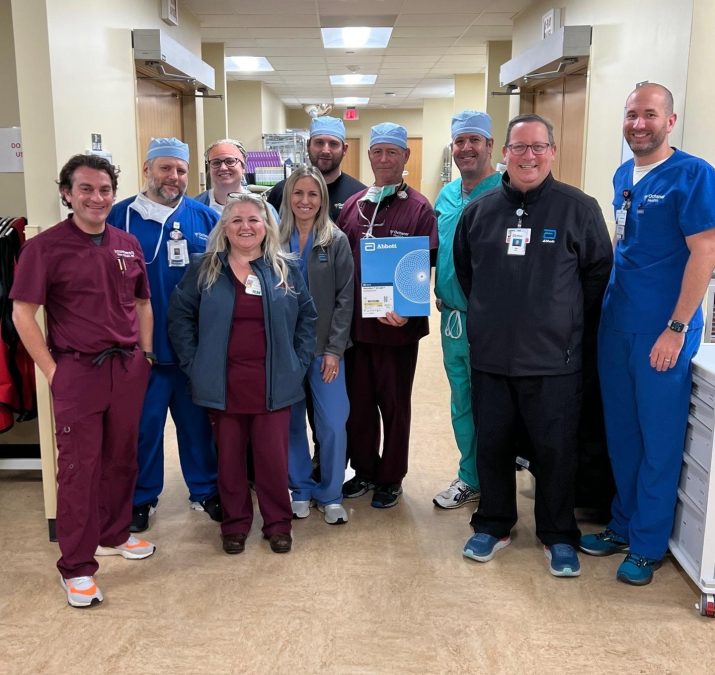
Accomplished drummer returns to his roots to redefine music lessons in Houma
December 13, 2022
CDC expands eligibility for the updated COVID-19 bivalent booster to children as young as 6 months
December 13, 2022Cardiovascular Institute of the South (CIS) is the first in Lafayette to offer Abbott’s Amplatzer Amulet Left Atrial Appendage (LAA) Occluder as a minimally-invasive therapy to prevent stroke due to atrial fibrillation in appropriate patients. Dr. Marc Saad, CIS electrophysiologist, is using this technology at Ochsner Lafayette General.
The device uses dual-seal technology to completely and immediately seal the LAA of the heart, so long-term blood-thinning medication is not needed following the procedure. This occluder has the widest range sizes on the market and can accommodate different patient anatomies and sizes. It is also recapturable and repositionable for physicians to help ensure optimal placement.

“The Amulet is a great new tool to provide our community with a new option to protect them from strokes due to atrial fibrillation when blood thinners are not a good long-term solution,” explained Dr. Saad.
AFib occurs when the upper chambers of the heart (atria) beat out of coordination with the lower chambers (ventricles) and contract rapidly and irregularly. In some people with AFib, the LAA – a small, naturally occurring pocket connected to the upper left chamber of the heart – can allow blood to pool and increase the likelihood of a clot formation, which can travel to the brain and cause a stroke. For patients with AFib who are unable to take blood thinners long-term, physicians may perform procedures to prevent blood clots from leaving the LAA to reduce the risk of stroke.
Ask your doctor if this treatment may be right for you. To schedule an appointment with a CIS cardiologist, click here.





